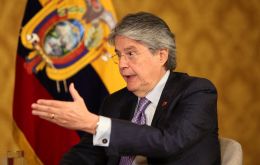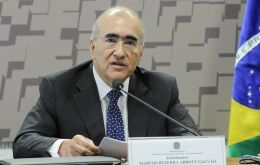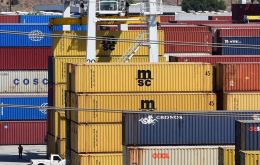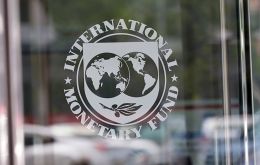MercoPress. South Atlantic News Agency
Economy
-
Thursday, May 25th 2023 - 10:00 UTC
Canada, Saudi Arabia resume full diplomatic ties after 5 years

Five years after Saudi Arabia expelled Canada's ambassador from Riyadh over Ottawa's remarks on women's rights activists, both countries agreed Wednesday to restore full diplomatic relations, Global Affairs Canada (Canada's foreign ministry - GAC) announced in a statement.
-
Wednesday, May 24th 2023 - 10:19 UTC
Ecuador: President signs decree-law attracting investments

Ecuadorian President Guillermo Lasso Tuesday signed his second urgent economic decree-law after the May 17 invoking of the crossed death constitutional procedure to dissolve Congress and call for snap elections. Tuesday's “Attraction and Promotion of Investments for Productive Development” initiative, which provides for the creation of new duty-free trade zones, needs Constitutional Court's approval to become effective. The bill was submitted two years ago by the Government of Ecuador to the outgoing National Assembly, but it was shelved.
-
Wednesday, May 24th 2023 - 09:59 UTC
China and Brazil reaffirm stronger partnership, Brazilian envoy in Beijing

Brazil and China are set to embrace a higher state of solid partnership, and the two sides have shown a strong commitment to bolstering bilateral trade, cooperation in aviation and high-tech sectors, and response to climate change, said the country's top envoy to Beijing.
-
Wednesday, May 24th 2023 - 09:55 UTC
IMF improves UK economy forecast for this year but “inflation remains stubbornly high”

Improved prospects for the UK economy according to the latest report from the IMF. The Fund said UK is expected to avoid a recession this year, with the economy growing 0,4% in 2023, compared to the a previous forecast of a 0,3% contraction last year.
-
Wednesday, May 24th 2023 - 07:42 UTC
Global production of shipping containers piles up at major ports because of lack of demand for goods

Global production of shipping containers has fallen significantly as demand for goods sank following the easing of pandemic restrictions, leaving the corrugated steel boxes piled up at major ports.
-
Tuesday, May 23rd 2023 - 11:42 UTC
Argentina introduces new banknote amid high inflation

Argentina launched the AR$ 2,000 banknote on Monday, with a value slightly exceeding US$ 4 in the unofficial exchange rate. It will be the highest denomination banknote in a country where year-on-year inflation has reached 108%.
-
Tuesday, May 23rd 2023 - 11:11 UTC
Norwegian catches for UK Fish and chips, and the price now averages £9

The soaring price of the UK staple fish and chips has become a national controversy from the moment a portion of the dish in Somerset can cost as much as £14, while the UK average is £9, according to the ONS, reports BBC. But, the 19% increase has nothing to do with profiteering, the National Federation of Fish Friers (NFFF) says.
-
Monday, May 22nd 2023 - 10:48 UTC
Chilean large port reflects the slower performance of the country's economy

San Antonio, the largest port complex in Chile, had its fourth consecutive month with negative figures, as cargo handling experienced a 13.7% decline in April. Throughout the first quarter, it saw a 14.5% decrease.
-
Monday, May 22nd 2023 - 10:23 UTC
IMF: Uruguay excels, predicts 2% growth, 7% inflation, 8.1% unemployment in 2023

The Executive Board of the International Monetary Fund (IMF) concluded the Article IV consultation with Uruguay on May 15, 2023, with prospects for this year anticipating 2% growth, declining inflation in the range of 7%, unemployment of 8,1% and a GDP of 81 bullion US dollars.
-
Saturday, May 20th 2023 - 11:40 UTC
Countries of the Paraná-Paraguay Waterway against toll collection by Argentina

The group of countries that make up the Paraguay-Parana Waterway Agreement Committee suggested Argentina refrained from adopting measures that violate the agreed rules and stop charging tolls to barges passing through Santa Fe. The committee is made up of Argentina, Bolivia, Brazil, Paraguay, and Uruguay.
